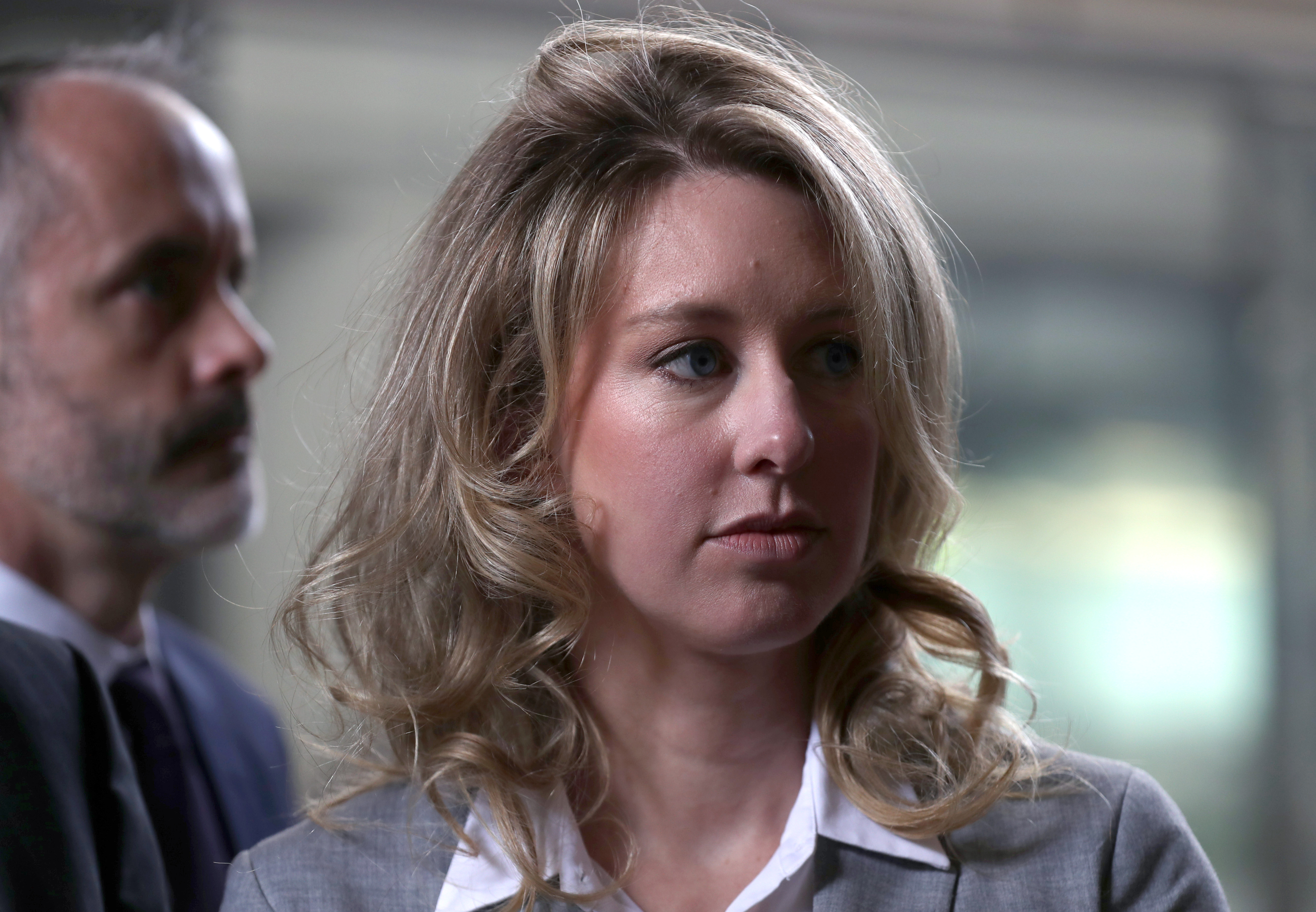Elizabeth Holmes, convicted Theranos founder, to push for new trial


A free daily email with the biggest news stories of the day – and the best features from TheWeek.com
You are now subscribed
Your newsletter sign-up was successful
Elizabeth Holmes, the founder of disgraced biotech company Theranos who was convicted on wire fraud and conspiracy charges, will get a chance in court Monday to argue for a new trial.
Holmes was convicted in January of defrauding investors through fraudulent claims about the accuracy of Theranos' blood testing devices, and is facing up to 20 years in prison. However, she requested a new trial in September after one witness reportedly told Holmes his testimony had been twisted by prosecutors to make her actions at Theranos look worse than they were.
The witness, Adam Rosendorff, was the former lab director of Theranos, and following his testimony against Holmes, he allegedly "felt guilty to the point where he had difficulty sleeping," The Wall Street Journal reported. Following this revelation, Holmes' lawyers argued that Rosendorff's conversation with Holmes provided enough evidence for her to get a new trial.
The Week
Escape your echo chamber. Get the facts behind the news, plus analysis from multiple perspectives.

Sign up for The Week's Free Newsletters
From our morning news briefing to a weekly Good News Newsletter, get the best of The Week delivered directly to your inbox.
From our morning news briefing to a weekly Good News Newsletter, get the best of The Week delivered directly to your inbox.
Despite this, Rosendorff's lawyers shot back, claiming he didn't recall the conversation or statement with Holmes. A court filing from Rosendorff's lawyers further added that Holmes' claims of their conversation did not accurately represent how he felt about Theranos, with the Journal reporting that Rosendorff "provided a sworn statement saying he stood by his testimony in Ms. Holmes's trial and had no reason to believe the government misrepresented her conduct at Theranos."
Holmes is set to appear before a U.S. District Judge in San Jose, California, along with Rosendorff, where the court will seek to determine if his testimony during Holmes' trial was truthful.
A free daily email with the biggest news stories of the day – and the best features from TheWeek.com
Justin Klawans has worked as a staff writer at The Week since 2022. He began his career covering local news before joining Newsweek as a breaking news reporter, where he wrote about politics, national and global affairs, business, crime, sports, film, television and other news. Justin has also freelanced for outlets including Collider and United Press International.
-
 Munich Security Conference: a showdown between Europe and Trump?
Munich Security Conference: a showdown between Europe and Trump?Today’s Big Question Report suggests European leaders believe they can no longer rely on the US for military support – but decoupling is easier said than done
-
 The Week Unwrapped: Have televised confessions quelled protests in Iran?
The Week Unwrapped: Have televised confessions quelled protests in Iran?Podcast Plus, why has Elon Musk turned from Mars to the Moon? And will the BBC prove to be a puzzles champ?
-
 The week’s best photos
The week’s best photosIn Pictures An Andean god, a rogue squirrel, and more
-
 Blue Origin launches Mars probes in NASA debut
Blue Origin launches Mars probes in NASA debutSpeed Read The New Glenn rocket is carrying small twin spacecraft toward Mars as part of NASA’s Escapade mission
-
 Dinosaurs were thriving before asteroid, study finds
Dinosaurs were thriving before asteroid, study findsSpeed Read The dinosaurs would not have gone extinct if not for the asteroid
-
 SpaceX breaks Starship losing streak in 10th test
SpaceX breaks Starship losing streak in 10th testspeed read The Starship rocket's test flight was largely successful, deploying eight dummy satellites during its hour in space
-
 A rat infestation is spelling trouble for the almond industry
A rat infestation is spelling trouble for the almond industryThe Explainer The infestation has affected at least 100,000 acres in California
-
 Rabbits with 'horns' sighted across Colorado
Rabbits with 'horns' sighted across Coloradospeed read These creatures are infected with the 'mostly harmless' Shope papilloma virus
-
 Lithium shows promise in Alzheimer's study
Lithium shows promise in Alzheimer's studySpeed Read Potential new treatments could use small amounts of the common metal
-
 Scientists discover cause of massive sea star die-off
Scientists discover cause of massive sea star die-offSpeed Read A bacteria related to cholera has been found responsible for the deaths of more than 5 billion sea stars
-
 'Thriving' ecosystem found 30,000 feet undersea
'Thriving' ecosystem found 30,000 feet underseaSpeed Read Researchers discovered communities of creatures living in frigid, pitch-black waters under high pressure
